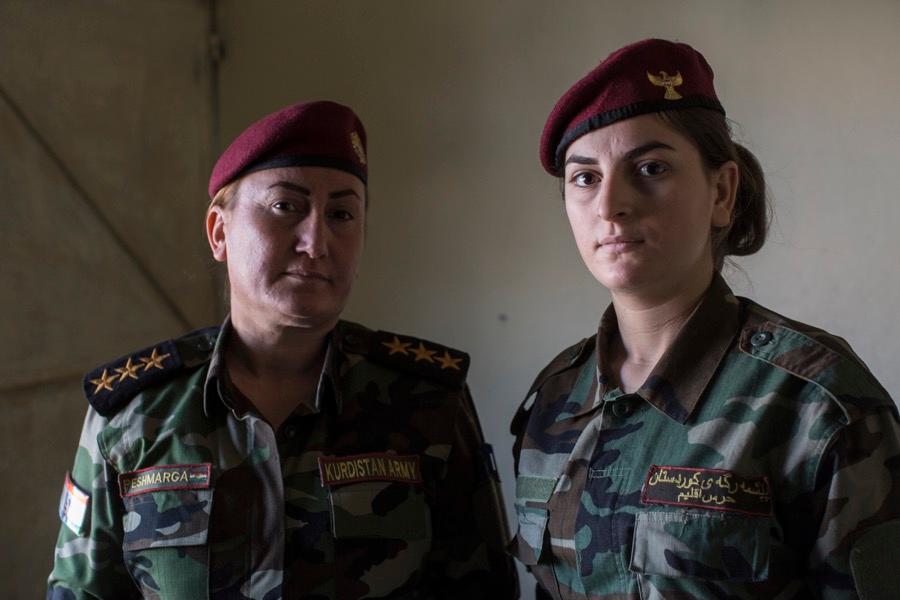Capt. Khatoon Khider, left, commander of the all-female Yazidi Sun Brigade, with her sister, Aliya, in a home near the city of Dohuk, in Iraqi Kurdistan, on Sept. 24.
Khatoon Khider used to sing old Yazidi folk songs about the suffering of her people. But when she found herself in the midst of a crisis worthy of those songs, she couldn’t bring herself to play any more.
ISIS overran her hometown of Sinjar, in northern Iraq, in the summer of 2014. They killed an estimated 5,000 men and boys who belonged to the Yazidi religious minority, and took thousands of women and girls captive to be bought and sold as sex slaves. The United Nations called it a genocide.
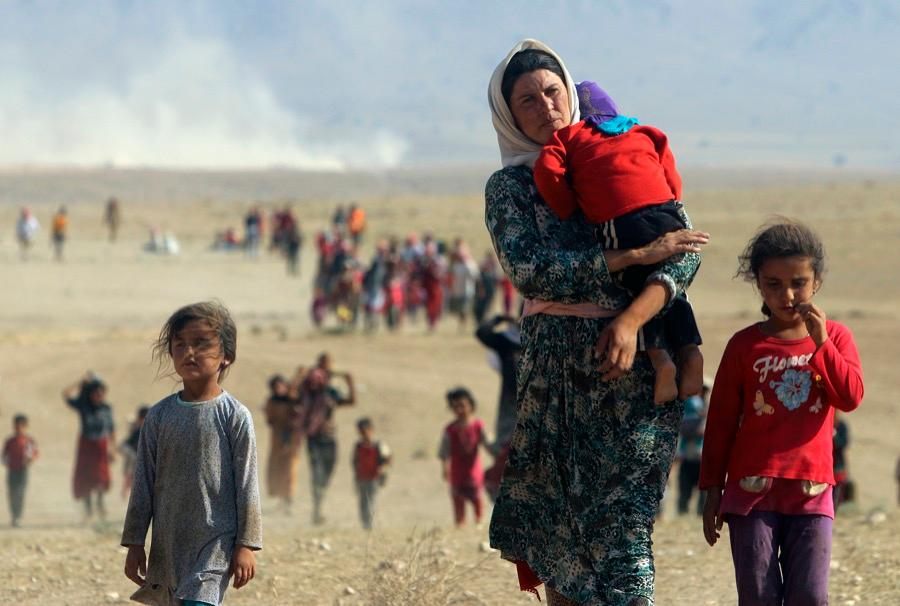
“I was famous in many places. But I left all of that after what happened and I became a soldier.”
Khatoon was there when ISIS came to Sinjar, during the group’s brutal rapid takeover of areas of northern and western Iraq. Kurdish peshmerga fighters stationed in the town retreated. She watched it all unfold in front of her.
“They took women, children and girls, they took families and carried out massacres,” says Khatoon, 36, as we meet in her temporary home in the city of Dohuk.
She fled with her neighbors up the steep, rocky slopes of Mount Sinjar, while ISIS fighters chased after them. In hiding the Yazidis had no food or water. Many feared they would starve to death.
“I was stuck in the mountain for 10 days, I saw with my bare eyes that women threw away their children so that ISIS wouldn’t capture them. People were leaving their parents, the older men and women, and fleeing.”
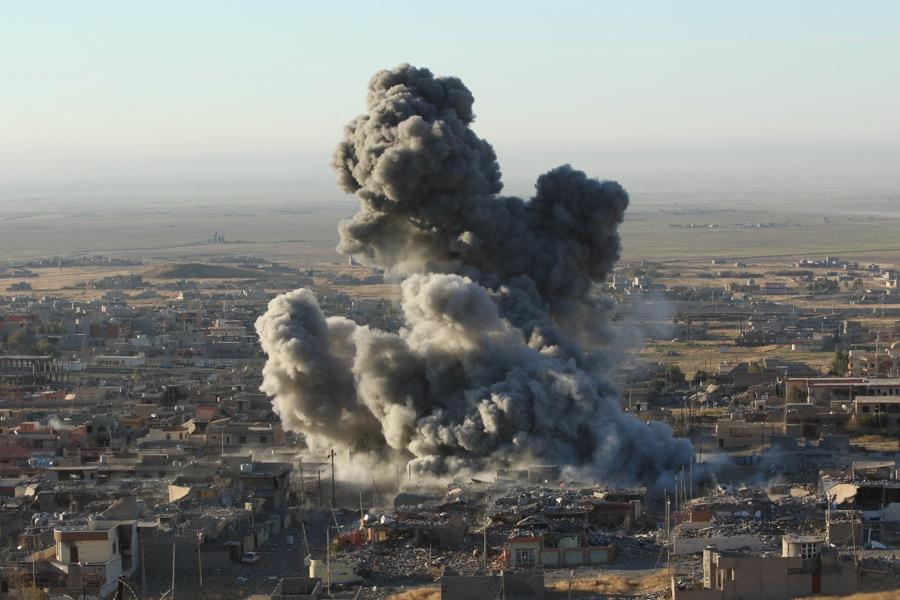
After her lucky escape, Khatoon wanted to fight back. This was a crime against humanity, but it was also a crime against women. She thought women should play a role in fighting back. She refused to be a victim.
Her solution was to form the first all-female Yazidi fighting battalion. They call themselves the Sun Ladies.
The battalion received weapons, training and support from the government of semi-autonomous Kurdistan region in northern Iraq. They are the first female battalion of the peshmerga — the Kurdish region’s army — which translates to “those who face death.”
Also in this series: This Iraqi woman escaped ISIS and a bad marriage, all for the love of her children
Khatoon says she has 1,700 Yazidi women in her battalion. They found willing volunteers among those displaced from Sinjar, many of whom had friends and relatives captured and enslaved by ISIS.
“I asked the Yazidi girls, ‘Who would like to join me to defend our honor?’ And every day in displaced camps for Yazidi people, girls were signing up,” she says. “We spread through media that we are going to defend our honor and my call is not only for Yazidi girls, not for Sinjar alone, but to all women.”
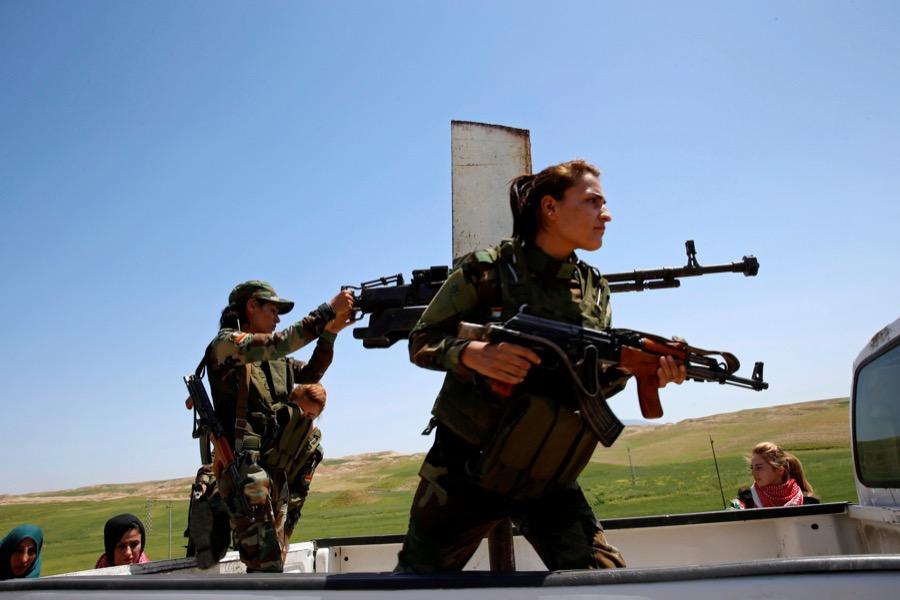
One of those who signed up was her younger sister, Aliya.
Sitting beside Khatoon as we talk, Aliya is 21-years-old and has a very stern expression. Khatoon has the soft eyes of a singer, but Aliya’s are different somehow.
“I knew many girls who were taken by ISIS. Many of my school friends,” says Aliya, who also went to Mount Sinjar when ISIS attacked. “Some of them are still captured by ISIS. If they knew about weapons, they might have escaped from ISIS.”
The sisters come from a military family. Their brother is also in the peshmerga. Their father was a soldier, and so was his father. Before ISIS came along, Khatoon had chosen another path. But Aliya always wanted to be a fighter.
“Everyone had different dreams of what they wanted to become in the future. I was dreaming about going to the army college and becoming a peshmerga,” Aliya says. “I was proud of my brother, watching him wear his uniform and going to duty.”
![]()
Accurate numbers for the Yazidi population are hard to come by, but estimates range from 200,000 to 700,000. They are based primarily in northern Iraq, but some have spread to neighboring Turkey and Syria.
The Yazidi faith shares some aspects of Christianity and Islam, but it is a distinct religion. Followers worship one supreme being, a peacock angel named Malak Taus.
They have long been viewed with suspicion by religious extremists. ISIS called them “devil worshippers” when they carried out their attacks.
Also in this series: How an Iraqi Christian teenager survived two years in the heart of the ISIS 'caliphate'
As Khatoon tells it, Yazidis have lived in a siege mentality for as long as they can remember.
“The situation of Yazidis here in Sinjar has never been good. We have never seen a good life,” she says.
“Me, my father and my grandfather have all seen wars. They say there have been 73 massacres on Yazidi people. Every time there is a fight a government comes here, because Sinjar is a strategic place, it is between Iraq and Syria, and there are all religions in Sinjar.”
She also talks of a tension between Yazidis and their Arab neighbors.
“If we go to live with Arabs they don’t accept us building houses near them. They didn’t accept us to have even a handful of land. We worked on people’s farms for 13 years.”
Part of the reason Khatoon started her battalion appears to be not just for revenge, but also to stop anything like the ISIS takeover from ever happening again.
After several requests, Khatoon agrees to sing one of the songs she used to sing. It’s an old Yazidi folk song.
oembed://https%3A//www.youtube.com/watch%3Fv%3D349m3zMBsnE%26feature%3Dyoutu.be
In it, the singer is addressing a bird. She tells it not to make its nest in that tree. That tree is a dangerous place. It can be destroyed at any time. Trust nobody.
She is singing, of course, about the Yazidis and their home in Sinjar.
In a few days, the sisters will return to their posts east of Sinjar. They are consumed with the drive to fight the men who committed such heinous acts against their people.
ISIS is on the run in Iraq. This month Iraqi army said they recaptured all of the eastern part of the city of Mosul. When the militant group is defeated there, it will have lost its last major stronghold in the country.
But the ideology of ISIS will always be a threat to the Yazidis. There may come a time when the extremists try to rise up again, and finish what they started.
The next time they do, Khatoon and Aliya will be waiting for them, in their nest, in that dangerous tree.
ISIS' path through Iraq
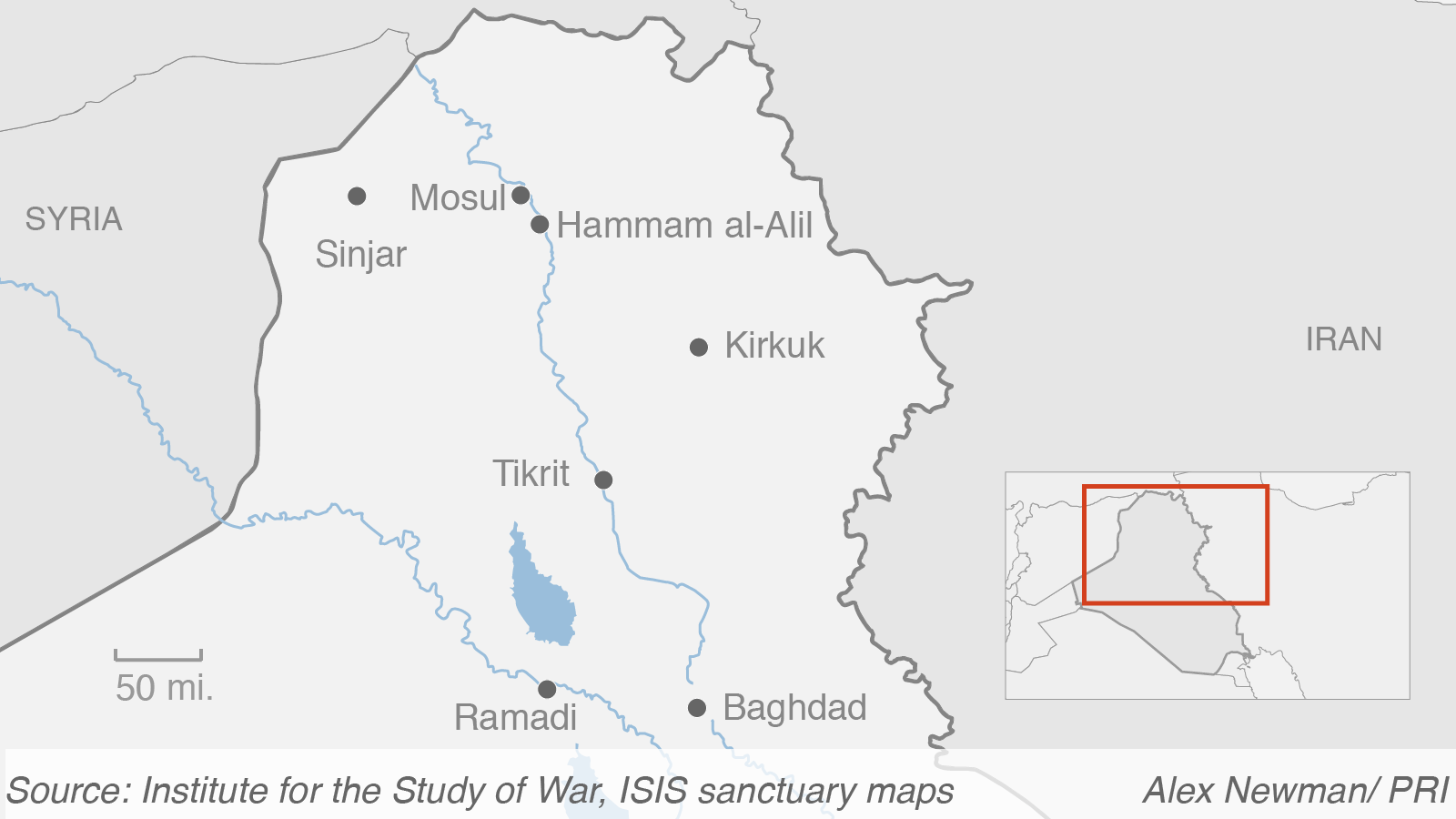
This story is part of the series Iraq Interrupted: stories of survival from Iraqi men and women who have struggled and persevered through more than a decade of conflict.
